
December 7
Over 2,400 servicemen and 100 civilians are killed. The US Navy is totally unprepared for the attack. Canada declares war on Japan within a few hours of the attack, even before the US declaration of war. The American defenders scramble to their posts, and shoot down 29 Japanese planes, killing 64. The attack on Pearl Harbor is timed to coincide with the Japanese landings on Hong Kong, Malaya and Thailand and air bombings on American bases on the Philippines, Guam and Wake and Midway Islands. (Bradle

43BC Death: Marcus Tullius, known as Cicero; statesman, writer, remembered as Rome's greatest orator. One of the greatest sons of Rome, he is assassinated on the orders of Marcus Antonius. (Bradley)
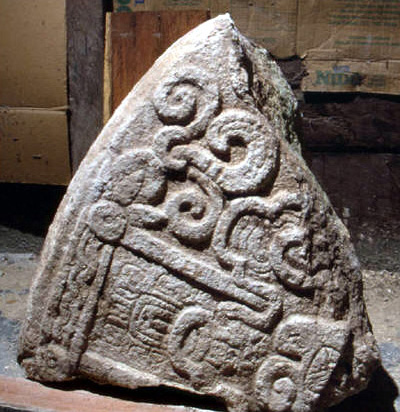
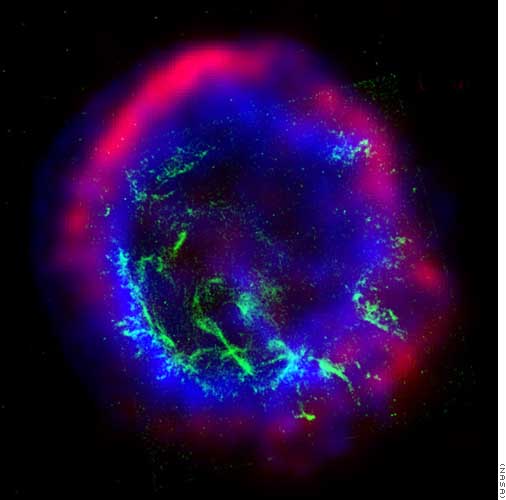
0983 Death: Otto II the Red, German king, emperor (973-83), at about 28.
0983 Otto III takes the throne after his father's death in Italy as a power struggle between magnates ensues.
0967 Birth: Abu Sa'id ibn Aboa al-Chair, Persian mystic.
1542 Birth: Mary Stuart, Queen of Scots (1560-1587).

1661 Under pressure from the British Parliament, the American Colony of Massachusetts suspends its Corporal Punishment Act of 1656, which had imposed harsh penalties on Quakers and other religious Nonconformists. (Bradley)
1703 Dec 7-8 Violent storms cause vast damage across southern England. About a third of Britain's merchant fleet is lost, and the Eddystone lighthouse is destroyed. (Bradley)
1741 Elisabeth Petrovna becomes tsarina of Russia.
1754 Birth: Jack Jouett, American patriot. "...Jack Jouett was sitting outside the Cuckoo Tavern in the town of Louisa, VA when he heard the sounds of riding cavalry. He crept softly to the roadside where he saw Col. Banastre Tarleton with a detatchment of troops, known as the Green Dragoons, riding toward Charlottesville, VA. Jack knew at once whom they meant to capture there. Thomas Jefferson, Patrick Henry, Benjamin Harrison, and Thomas Nelson, who had all signed the Declaration of Independence and were all members of the Virginia legislature, were together at Monticello having fled from Richmond on the approach of Gen. Charles Cornwallis. Jack knew he had to warn them, and there was no one else to do it. He saddled and bridled his bay mare, Sallie, and rode the forty miles from the Cuckoo to Charlottesville. He could not take the only road, for fear of being caught. Instead, he rode across meadows, through thickets, woods and footpaths. There was only the moon to light his way. Branches tore his skin and clothing but his determination kept him going. The troops did not know he had seen them and stopped three times along the way: once to rest their horses, next to burn an American wagon train, and the third time at Castle Hill where two legislators were sleeping. Here, they arrested them in their nightshirts. Jouett rode through the night and arrived at Monticello just before dawn. He pounded on the door and warned those inside that Tarleton's men were on the way to capture them. At Monticello that night were Thomas Jefferson, Thomas Nelson Jr., Richard Lee, Benjamin Harrison, Patrick Henry and Edmund Randolph. Before they fled, Jefferson was able to hide the state papers that the British had hoped to find. Tarleton reached Charlottesville two hours later and found his "quarry" gone. Jack rode on to his father's inn, the Swan, where other assemblymen were staying. He warned them also, and a few militia rushed to hold the British at the river. Several members of the Assembly were taken to General Stevens, who had been wounded and was too weak to ride. The Jouettes disguised the General in a ragged cloak and helped him mount a nag, while Jack put on a fresh uniform and borrowed his father's fastest horse. When Tarleton saw the bright red coat with epaulets and braid, he thought Jack was an officer of high rank. Jack Jouett led the British on a chase while General Stevens slipped away. The legislature, reconvening in Staunton, promptly voted Jouett "an elegant sword and a pair of pistols" in appreciation of his activity and enterprise. Jouett moved the following year to Kentucky, married Sallie Robards, was close to President Andrew Jackson, helped Kentucky achieve statehood, served four terms in the state legislature, and prospered as a planter and horse breeder. The horse, Sallie, that carried Jack Jouett on his ride, became the ancestor of a long line of thoroughbred Jack Jouett was sitting outside the Cuckoo Tavern in the town of Louisa, VA when he heard the sounds of riding cavalry. He crept softly to the roadside where he saw Col. Banastre Tarleton with a detatchment of troops, known as the Green Dragoons, riding toward Charlottesville, VA. Jack knew at once whom they meant to capture there. Thomas Jefferson, Patrick Henry, Benjamin Harrison, and Thomas Nelson, who had all signed the Declaration of Independence and were all members of the Virginia legislature, were together at Monticello having fled from Richmond on the approach of Gen. Charles Cornwallis. Jack knew he had to warn them, and there was no one else to do it. He saddled and bridled his bay mare, Sallie, and rode the forty miles from the Cuckoo to Charlottesville. He could not take the only road, for fear of being caught. Instead, he rode across meadows, through thickets, woods and footpaths. There was only the moon to light his way. Branches tore his skin and clothing but his determination kept him going. The troops did not know he had seen them and stopped three times along the way: once to rest their horses, next to burn an American wagon train, and the third time at Castle Hill where two legislators were sleeping. Here, they arrested them in their nightshirts. Jouett rode through the night and arrived at Monticello just before dawn. He pounded on the door and warned those inside that Tarleton's men were on the way to capture them. At Monticello that night were Thomas Jefferson, Thomas Nelson Jr., Richard Lee, Benjamin Harrison, Patrick Henry and Edmund Randolph. Before they fled, Jefferson was able to hide the state papers that the British had hoped to find. Tarleton reached Charlottesville two hours later and found his "quarry" gone. Jack rode on to his father's inn, the Swan, where other assemblymen were staying. He warned them also, and a few militia rushed to hold the British at the river. Several members of the Assembly were taken to General Stevens, who had been wounded and was too weak to ride. The Jouettes disguised the General in a ragged cloak and helped him mount a nag, while Jack put on a fresh uniform and borrowed his father's fastest horse. When Tarleton saw the bright red coat with epaulets and braid, he thought Jack was an officer of high rank. Jack Jouett led the British on a chase while General Stevens slipped away. The legislature, reconvening in Staunton, promptly voted Jouett "an elegant sword and a pair of pistols" in appreciation of his activity and enterprise. Jouett moved the following year to Kentucky, married Sallie Robards, was close to President Andrew Jackson, helped Kentucky achieve statehood, served four terms in the state legislature, and prospered as a planter and horse breeder. The horse, Sallie, that carried Jack Jouett on his ride, became the ancestor of a long line of thoroughbred race horses..."
1761 Birth: [Marie Grosholtz] Madame Tussaud, museum curator, creator of wax figures.
1783 William Pitt the Younger, at age 24, becomes the youngest of Britain's Prime Ministers.

1810 Birth: Theodor Schwann, German physiologist, cooriginator of cell theory.
1815 Michel Ney, the most famous of Napoleon Bonaparte's marshals, is executed by firing squad for treason.
1815 Death: Michel Ney, French marshal (Waterloo), murdered at 46.
1817 Death: William Bligh, British naval officer of "Bounty" fame in London at 63.
1823 Birth: Leopold Kronecker, German mathematician; Tensor of Kronecker.

1835 The German railway from Neurenberg to Fürth opens.
1842 Birth: Otto Ammon, German anthropologist, sociologist; schedelmetingen.
1847 Birth: Solomon Schechter, US Talmudic scholar, Jewish leader.
1860 Death: Constantine S Aksakov, Russian historian, poet, at 43.

1862 Death: Sylvester Churchill; US Union Brigadier-General.
1862 US Civil War: Confederate forces surprise an equal number of Union troops at the Battle of Prairie Grove, Arkansas.
1862 Birth: Paul Adam, French writer; La Bataille d'Uhde.
1863 Outlaw George Ives, an alleged member of an outlaw gang known as the 'Innocents', robs and then kills Nick Thiebalt in the Ruby Valley of what would become Montana. (Bradley)
1868 Jesse James' gang robs a bank in Gallatin, Missouri, killing 1 person.
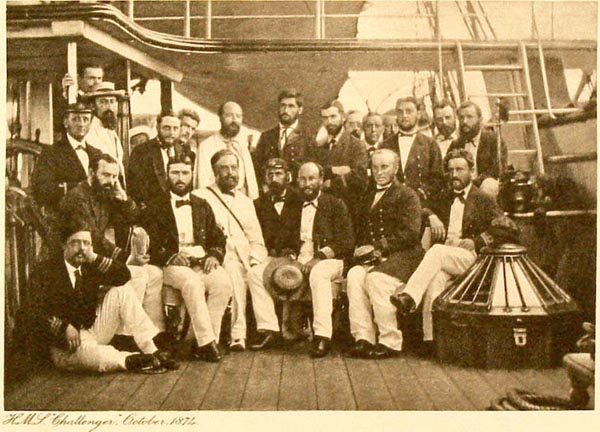
1872 Birth: Johan Huizinga, Dutch culture historian; Homo Ludens.
1873 Birth: Willa Cather, Pulitzer Prize-Winning author, novelist; O Pioneers!, My Antonia.
1875 The Natives Sons of the West is organized.
1881 Death: Julius F.A. Bahnsen, German philosopher; Tragic as Weltgesetz.
1885 The 49th US Congress (1885-87) convenes.
1888 Birth: Joyce Cary, Irish-born novelist; The Horse's Mouth, House of Children.
1888 Birth: Hamilton Fish, US congress, isolationist leader.
1891 The 52nd US Congress, the first to appropriate $1 billion, holds its first session.
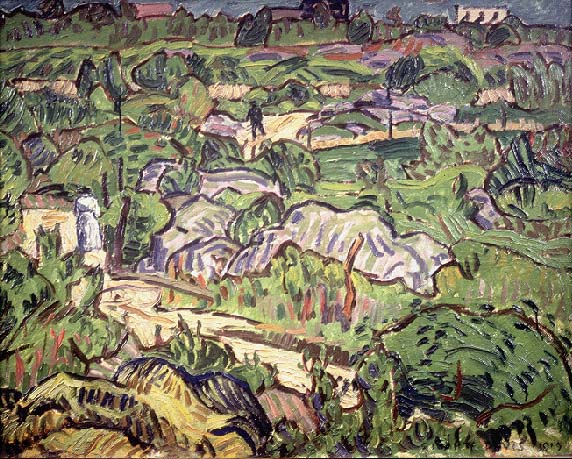
1895 Battle at Amba Alagi: The Abyssinians beat the Italian armies.
1896 Battle of Punta Brava: Antonio Maceo is killed in western Cuba during The Second War of Cuban Independence.
1901 Birth: A.F. 'Tony' Pugsley, British rear-admiral; Walcheren attack (1944).

1905 Birth: Gerard Kuiper, Dutch-US astronomer; will discover moons of Uranus and Neptune.
1908 Birth: Jacques Gans, Dutch author, journalist.

1909 Leo Baekeland, of Yonkers, New York, patents the first thermosetting plastic.
1912 Death: George Darwin; he theorized that the Moon was pulled out of the Pacific Ocean.

1915 President Wilson asks for a standing army of 142,000 and a reserve of 400,000.

1916 WW1: Herbert H. Asquith resigns as British Prime Minister and is replaced by David Lloyd George, the war secretary, in a coalition government committed to waging all-out war on Germany.


1921 Weimar: The USPD-KPD parties merge into the Vereinigte Communist Party of Germany.
1926 The household refrigerator, operating on natural gas, is patented by The Electrolux Servel Corporation.
1928 Birth: Noam Chomsky, writer, linguist, political activist; will found transformational grammar.
1932 Wiley Post discovers the jet stream.
1933 Lord Robert Cecil is elected chairman of the Governing Body of German Refugees.
1933 Vice Chancellor von Papen urges German-Americans to act as Nazi propagandists.

1936 The last Jewish department store in Germany is "Aryanized."
1937 Dutch Minister Romme proclaims that married women are forbidden to work.
1939 WW2: The 'First flight' of Canadian troops sails for Britain with 7,400 men on 5 ships.
1939 Holocaust: Inmates, including many Jews, at Tiegenhof asylum near Gnesen in the Polish Wartheland are said to be among the earliest victims of Nazi Germany's poison-gas technology. Bottled carbon-monoxide appears to have been used in vans. (Architect)
1939 WW2: Gestapo-NKVD conference takes place in a Polish resort town to plan the joint liquidation of Polish resistance. In 1939 the Gestapo employs 7,500 people while the NKVD numbers 366,000.
1941 WW2: Nacht and Nebel Erlass, resistance fighters, are sent to concentration camps.


1941 WW2: Great Britain declares war on Romania.
1942 Holocaust: Germans shoot 96 Polish inhabitants of Bialka for sheltering Jews.


1944 A convention on International Civil Aviation is drawn up in Chicago.
1944 WW2: General Radescu forms a Romanian government.
1946 The president of the United Mine Workers, John L. Lewis, orders all striking miners back to work.
1953 David Ben Gurion, who had been prime minister of Israel since its foundation, resigns.
1954 The Japanese government of Joshida resigns.
1960 Ivory Coast claims independence from France.
1962 Great Britain performs a nuclear test at the Nevada Test Site.
1968 Richard Dodd, the great-grandson of a person who borrowed a volume on diseases from the University of Cincinnati Medical Library 145 years earlier (1823) is assessed the largest library fine ever: $22,646. The fine has never been paid.
1968 The Orbiting Astronomical Observatory 2 is launched into Earth orbit.

1970 Poland and West Germany sign a pact renouncing the use of force to settle disputes, recognizing the Oder-Neisse River as Poland's western frontier, and acknowledging the transfer to Poland of 40,000 square miles of former German territory. (Bradley)

1975 Birth: Nikola Wapzarow, writer.
1975 The Indonesian army sweeps into East Timor as civil war breaks out after the Portuguese colonial rulers of three centuries departed.
1975 Death: Thornton N. Wilder, US writer; Bridge of San Luis Rey.
1976 The UN Security Council endorses Kurt Waldheim, as Secretary-General for a second 5-year term.
1979 Death: Prince Chahryar Shafik, Shah of Iran's nephew, murdered in Paris.
1979 Death: Nicolas Born, writer, at 41.
1981 Spain becomes a member of the NATO.

1982 Death: Charlie Brooks Jr., convicted murderer; the first US prisoner to be executed by lethal injection, at a prison in Huntsville, Texas.
1983 Death: Edgar Graham, member of Northern Ireland Assembly, shot dead by the IRA.
1985 Death: Potter Stewart, 94th Supreme Court Justice (1958-81), in New Hampshire at 70.
1987 A Palestinian uprising erupts in the West Bank.
1988 Mikhail Gorbachev announces a 10% unilateral Soviet troop reduction at the UN.
1988 Death: Andrei P. Ershov, Russian computer pioneer.
1989 Czech President Gustav Husak accepts the resignation of Communist Prime Minister Ladislav Adamec.
1989 President Corazon Aquino asks the Philippine Congress for extra powers to rule the country after a six-day coup attempt.
1990 GATT trade talks are suspended when a row over farm subsidies between the European Community and the US paralyzes a four-year attempt to lift barriers on commerce.
1990 Desert Storm: The Iraqi parliament endorses Saddam's decision to free hostages.
1990 Death: Horst Bienek, writer, at 60.
1991 Serb forces bombard Dubrovnic's historic Old Town, leaving many dead and thousands homeless.

1993 The US government brags that it had concealed 204 nuclear blasts at its Nevada test site, more than one-fifth of total tests, to keep the old Soviet Union in the dark about the US arsenal.
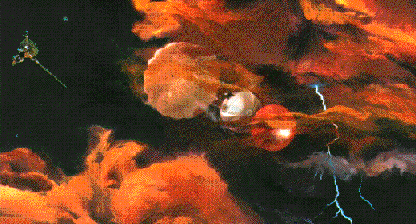
1995 A probe from the spacecraft Galileo successfully enters the atmosphere of the planet Jupiter and begins orbiting.

2000 Prime Minister Tony Blair flies into the controversial EU Nice summit declaring that he will defy protesters fighting pitched battles with police.
2001 The Times of London reports that Taliban spiritual leader Mullah Muhammad Omar is being held captive in a "friendly environment" near the city of Kandahar. Amid reports of the fall of Kandahar, other reports indicate Omar is still in Kandahar or had fled. Afghanistan's interim leader Hamid Karzai toughens his stance on Omar describing him as a "fugitive" who should be brought to "international justice."



2001 American B-52 bombers continue to pound the caves around Tora Bora as opposition forces drive the remaining al-Qaeda forces deeper into the surrounding mountains.

2001 American ships in the Arabian Sea board cargo ships in the area searching for fleeing Al-Qaeda commanders.
2001 Israeli F-16 jets destroy PLO leader Yasser Arafat's police headquarters in Gaza City.

2001

2002

2002

2003

2004

2004

2004

2004

2004

2004

Visit:




 Visit:
Visit:

Click Here to email the History: One Day At a Time webmaster.